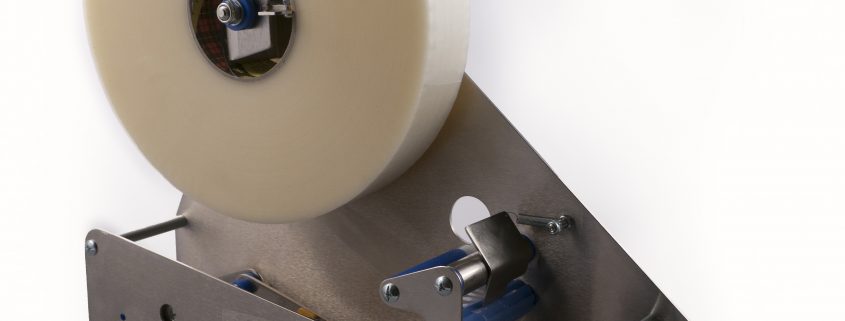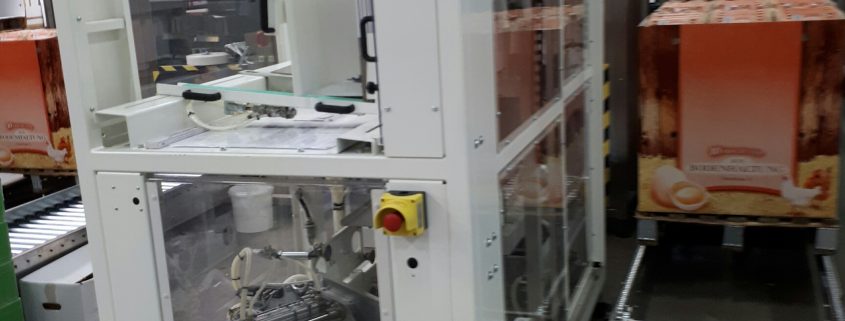Blog Post – The Real Cost of Ownership
Within the fast paced FMCG environment today, staying ahead in manufacturing and technology means doing more with less. This includes strategies to drive down costs, eliminate waste and enhance productivity—all the while increasing output, and meeting the rapid pace of market pressures.
Manufacturers need solutions which safeguard their initial investment. When investing in automation equipment they should not only look to increase efficiency and output, but reduce the long-term total cost of ownership (TCO) of automation assets. Understanding this could unlock hidden savings, minimise downtime and boost productivity.
Part of TCO is maintenance, which is seen as a necessary cost of business, but it should be part of the overall business strategy to ensure systems remain running at optimum standards. With a proactive approach maintaining systems can become a key contributor to a company’s bottom line.
Below are to tips to ensure you get the most out of your equipment, while bringing TCO to a minimum:
- It is imperative that you have a good relationship with your machinery supplier who can ‘hold your hand’ through the installation process and beyond. Regular servicing is also vital throughout the lifespan of the system, to ensure that the machine consistently runs at its peak.
- Service agreements should be considered, if a system needs a service it could end up costing you in the long run by bringing in a less-expensive local engineer who has no experience in the machine you are operating. Most machinery suppliers will have good service plans in place. Link to service page
- Your machinery supplier should have their own in-house team of engineers who specialise in their equipment. They will also be able to offer routine servicing where not only will they be able to diagnose problems but, with their knowledge of the machinery, they will be able to pre-empt any issues and modify the machine to make production more efficient – for example changing the air pressure and recognising if bearings are wearing.
- Machinery suppliers should offer your engineers regular, on the job training. It has been reported that manufactures believe their in-house engineers won’t have the know-how to implement and maintain their systems. However, machinery suppliers who have designed and manufactured the machine themselves, will have the expertise to provide full knowledge of the system, and can give a manufacturer’s engineers the confidence to maintain and operate the machinery efficiently for the future. While most larger manufacturers will have their own team of engineers, it is essential that they are educated on a new system, therefore many machinery suppliers will offer regular training workshops with qualified technicians.
- Work with a machinery supplier who has their ‘finger on the pulse’ of current trends with the technical flexibility to modify software to suit your changing needs or a new product run.
- Make the most of Remote Diagnostics. This technology is quickly becoming a requirement from customers to help reduce downtime. The growth in this service, and its rapid troubleshooting capabilities, is escalating as it gives companies the assurances that their downtime, should problems occur, will be kept to a minimum and immediate resolutions can be offered. This option also offers overseas customers more comfort and support from machinery manufacturers.
- Does your machinery supplier hold enough spares? While we recommend that customers keep a number of spares, such as tape heads, to minimise downtime, it is inevitable that machinery suppliers will receive an urgent call for a part! Some manufacturers have had to wait weeks for a spare part when not dealing directly with a dedicated machinery manufacturer and supplier, who can generally turn around your order within 48 hours at most.
- Quality over quantity
Investing in quality machines from the outset can ultimately save you ££’s in the long term. A poorly built system could end up being replaced several times over during the lifetime of a high-quality system. So don’t overlook a more expensive system, look at the build quality, get customer testimonials, life-span of machine and find out what their service plan is. Purchasing several cheaper machines over a longer period will eventually outweigh the initial investment of a more quality built product.
- Finally – You get what you pay for!
Investing in end of line equipment may be one of the most costly exercises your business does, however, to avoid falling behind competitors, missing critical business opportunities or losing industry influence, it is imperative that you seize the opportunity to automate and invest in systems which are both reliable and efficient.
Endoline will be able to discuss the right approach for your end of line packaging requirement, please contact us.


